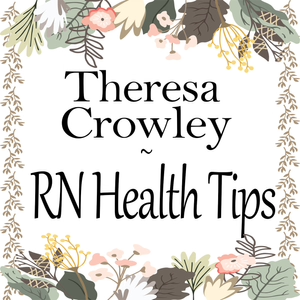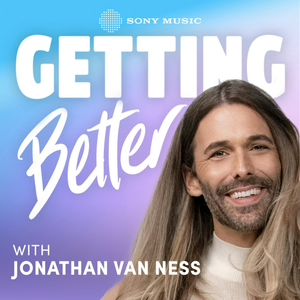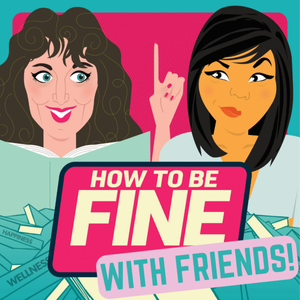
PEACEMAKING - Reorganizing the Way We Process Conflict Situations
04/04/22 • 24 min
FAQs Covered:
Is my conflict style permanent? Is it something I just have to live with?
Absolutely not. You can put in work to change your natural reactions to things. It takes several times doing something to build a habit. It definitely can be situational, but just because something's your instinctual reaction doesn't mean you're stuck with that. It's not like a self-identification or personality test (Myers Briggs, Enneagram, etc.)
Conflict styles are different in that we have, on some level, control over them. We definitely have natural reactions. We have instincts, but we also have the power to rebuild our habits. We have the power to say, I don't like reacting that way, I need to start figuring out how to react differently.
Is it better to react actively or passively? Wouldn't passively be better?
The real answer is that it really just depends on the person and the situation. That's why I recommend looking closely at the reactions you have that are destructive, and look at whether or not your tendency (in high emotion) is to react actively or passively.
BUT destructive reactions come in moments of really high emotion, and you're not going to be able to reflect on that well in the moment. That's why it's important to know what our triggers are and be able to recognize things in other people/situations/environments, and say, "this might be a trigger for me. I need to be paying close attention to my emotions and whether or not I'm reacting negatively in this situation."
If we know what our triggers are and learn to watch for them, that's when we start being able to reflect on our negative emotions and learn how to flip them into constructive reactions that play a positive role in the conflict, help us reach a resolution, help you be heard, AND help you gain more understanding and connection in that relationship.
Don't you need to know whose fault it is, in order to solve the problem?
There are exceptions to every blanket claim, but generally, no.
In general, if you're in a relationship with someone (any kind of relationship-- romantic, friendship, workplace, internet, family, etc.) and you're in conflict with them, and that relationship has to stay a working healthy relationship, then it needs to be resolved with collaboration. And if you're using fault or blame to decide how to solve the problem, then you're making it a "you vs. them" problem. And if our goal is collaboration, if our goal is to not damage this relationship, then we need to be able to approach it as "us vs. the problem", not "me vs. them" or "you vs. them" or "me vs. you".
What if I'm doing everything I can, and nothing's changing? What if I'm trying to be better and build my relationships, but I'm getting shut down?
The only thing I can say is that we cannot control the reactions of other people. We can only do everything in our power to communicate our needs and be open and honest when things hurt and/or bother us, when we think there might be a misunderstanding, or when we think there might be a misalignment.
You can only control the way you react. And you can control what you allow in your life. You are in control of the boundaries you set with the people you love. You're in control of whether or not you say yes or no to requests that come in. You're in control of the decisions you make on a daily basis. And you're in control of the way you decide to react and handle conflict. And that's true for every individual person, including the person who's refusing to meet you at your resolution.
Conflict is misalignment and it gives you information. Something's misaligned and there's information there for you. And just like you get to decide how you're reacting to the conflicts, you get to decide what you take from that misalignment and what you do next.
____________________________
FIND ME ON SOCIALS!!
ig: @yourconflictcoac.hh
fb: Your Conflict Coac.hh
yt: Hannah Hutchinson, Conflict Coach
tt: @yourconflictcoac.hh
OR EMAIL ME AT [email protected]
FAQs Covered:
Is my conflict style permanent? Is it something I just have to live with?
Absolutely not. You can put in work to change your natural reactions to things. It takes several times doing something to build a habit. It definitely can be situational, but just because something's your instinctual reaction doesn't mean you're stuck with that. It's not like a self-identification or personality test (Myers Briggs, Enneagram, etc.)
Conflict styles are different in that we have, on some level, control over them. We definitely have natural reactions. We have instincts, but we also have the power to rebuild our habits. We have the power to say, I don't like reacting that way, I need to start figuring out how to react differently.
Is it better to react actively or passively? Wouldn't passively be better?
The real answer is that it really just depends on the person and the situation. That's why I recommend looking closely at the reactions you have that are destructive, and look at whether or not your tendency (in high emotion) is to react actively or passively.
BUT destructive reactions come in moments of really high emotion, and you're not going to be able to reflect on that well in the moment. That's why it's important to know what our triggers are and be able to recognize things in other people/situations/environments, and say, "this might be a trigger for me. I need to be paying close attention to my emotions and whether or not I'm reacting negatively in this situation."
If we know what our triggers are and learn to watch for them, that's when we start being able to reflect on our negative emotions and learn how to flip them into constructive reactions that play a positive role in the conflict, help us reach a resolution, help you be heard, AND help you gain more understanding and connection in that relationship.
Don't you need to know whose fault it is, in order to solve the problem?
There are exceptions to every blanket claim, but generally, no.
In general, if you're in a relationship with someone (any kind of relationship-- romantic, friendship, workplace, internet, family, etc.) and you're in conflict with them, and that relationship has to stay a working healthy relationship, then it needs to be resolved with collaboration. And if you're using fault or blame to decide how to solve the problem, then you're making it a "you vs. them" problem. And if our goal is collaboration, if our goal is to not damage this relationship, then we need to be able to approach it as "us vs. the problem", not "me vs. them" or "you vs. them" or "me vs. you".
What if I'm doing everything I can, and nothing's changing? What if I'm trying to be better and build my relationships, but I'm getting shut down?
The only thing I can say is that we cannot control the reactions of other people. We can only do everything in our power to communicate our needs and be open and honest when things hurt and/or bother us, when we think there might be a misunderstanding, or when we think there might be a misalignment.
You can only control the way you react. And you can control what you allow in your life. You are in control of the boundaries you set with the people you love. You're in control of whether or not you say yes or no to requests that come in. You're in control of the decisions you make on a daily basis. And you're in control of the way you decide to react and handle conflict. And that's true for every individual person, including the person who's refusing to meet you at your resolution.
Conflict is misalignment and it gives you information. Something's misaligned and there's information there for you. And just like you get to decide how you're reacting to the conflicts, you get to decide what you take from that misalignment and what you do next.
____________________________
FIND ME ON SOCIALS!!
ig: @yourconflictcoac.hh
fb: Your Conflict Coac.hh
yt: Hannah Hutchinson, Conflict Coach
tt: @yourconflictcoac.hh
OR EMAIL ME AT [email protected]
Previous Episode

STONEWALLED - What Comes Next When Nothing is Working?
Stonewalling is what happens when someone mentally checks out of a relationship, any type of relationship -- they're refusing to resolve issues, have conversations, or react and respond to other people's attempts at connection or resolution.
With stonewalling, there's no immediate step forward. You can eventually get to the forward point you want to be at, but you can't walk through a stone wall. Once that wall is built, if you want to get to the other side, you either have to break it down or try a different route.
I will usually advocate for breaking it down, but sometimes you need help. And that's normal. No, I'm not lying. It's actually normal.
Here's the options:
Mental Health Professionals (e.g. therapists, psychiatrists)
Relationship Professionals (e.g. counselors, marriage/family therapists)
Legal Professionals (e.g. judiciaries, litigation teams, arbitrators)
Peacemaking Professionals (e.g. mediators, conflict coaches)
But here's what I'll say about leaving the stonewalled relationship/conflict as it is, and trying a different route-- if the other person or people involved are refusing to help you break down that wall, leave them there to either figure it out or keep doing nothing, and move forward with the people who would have helped you break down a wall that was damaging your relationship with them.
And if you don't know which people in your life would help you break down that wall, or if you're consistently being stonewalled, then you're not learning enough from your conflicts.
You can't control them. You can only control you, and your goal should always be to move forward. And if they can't keep up, leave them there.
FIND ME ON SOCIALS!!
ig: @yourconflictcoac.hh
fb: Your Conflict Coac.hh
yt: Hannah Hutchinson, Conflict Coach
tt: @yourconflictcoac.hh
OR EMAIL ME AT [email protected]
Next Episode

E1 - Allow Me to Reintroduce Myself
Overview of what to expect in Season 2 -- Updates and Changes
What is a conflict coach?
Why did I choose conflict coaching?
What can you do to reduce conflict in your life?
5 shifts that will change your life.
Instagram: @yourconflictcoac.hh
Facebook: @yourconflictcoac.hh
YouTube: @yourconflictcoachh
TikTok: @yourconflictcoac.hh
If you like this episode you’ll love
Episode Comments
Generate a badge
Get a badge for your website that links back to this episode
<a href="https://goodpods.com/podcasts/the-unconflicted-podcast-311844/peacemaking-reorganizing-the-way-we-process-conflict-situations-45016633"> <img src="https://storage.googleapis.com/goodpods-images-bucket/badges/generic-badge-1.svg" alt="listen to peacemaking - reorganizing the way we process conflict situations on goodpods" style="width: 225px" /> </a>
Copy




